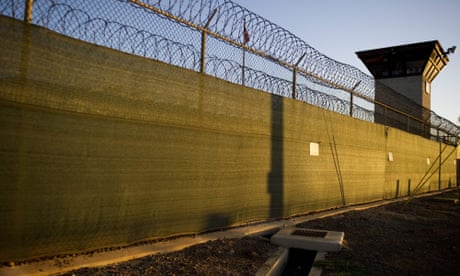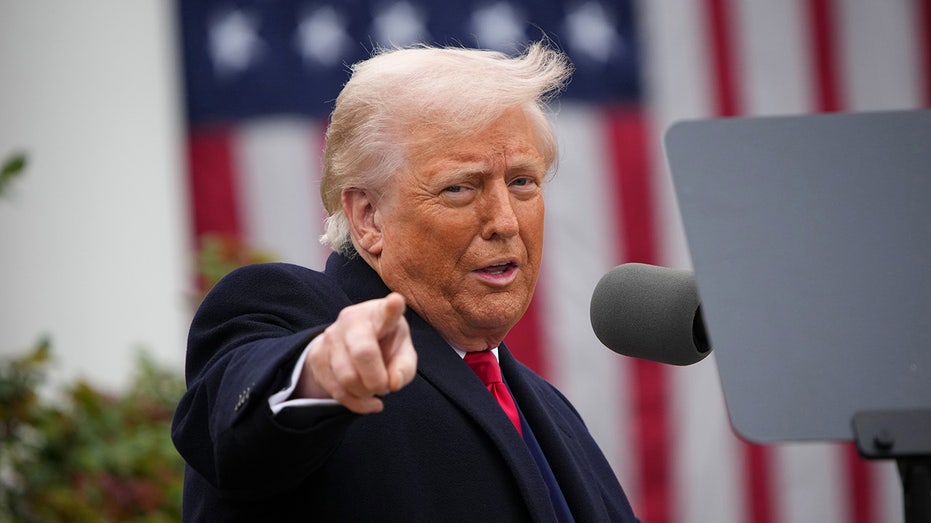- by foxnews
- 06 Apr 2025
?Enemy combatant? held at Guant?namo petitions for release because war is over
‘Enemy combatant’ held at Guantánamo petitions for release because war is over
- by theguardian
- 03 Dec 2021
- in news

Abu Zubaydah, the Guantánamo detainee who was tortured close to death by the CIA and who has been held without charge by the US for nearly 20 years, has petitioned a federal court for his release on grounds that America's wars in Afghanistan and with al-Qaida are over.
In a filing with the US district court in Washington DC, Zubaydah's lawyers argue that recent White House declarations that the armed conflict in Afghanistan is over - combined with the complete destruction of the original al-Qaida group that carried out 9/11 - have removed any remaining legal justification for keeping him captive. The motion calls for his immediate release, describing Zubaydah's treatment over the past two decades as a "parade of horribles".
At the heart of the new habeas corpus push for the detainee's freedom is Zubaydah's status as a so-called "enemy combatant". Under the 2001 Authorisation for Use of Military Force (AUMF), passed by Congress days after 9/11, the then president, George W Bush, was given the power to pursue those behind the terrorist attacks as part of the war on terror.
But as the new filing points out, Zubaydah has never been charged with involvement in 9/11 and he was not even a member of al-Qaida, as the US government has conceded. Rather, he was accused of offenses that took place in Afghanistan as part of a war that has now officially been concluded.
A day after the chaotic evacuation of Afghanistan was completed in August, the current president, Joe Biden, said: "My fellow Americans, the war in Afghanistan is now over."
Zubaydah's lawyers insist that the new emphasis on al-Qaida as the justification for keeping him in Guantánamo is also based on legal chicanery. Al-Qaida, they point out, was never specifically mentioned in the AUMF under which Zubaydah is being detained.
They also highlight the fact that all the top al-Qaida leaders involved in 9/11, including Osama bin Laden himself, have either been killed or captured with the sole exception of Bin Laden's successor, Ayman al-Zawahiri, who some suggest has died of illness.
"They are saying that if there's conflict with al-Qaida anywhere in the world, in Africa or elsewhere, then the war continues and Guantánamo detainees will be locked up forever," the lead lawyer in Zubaydah's habeas petition, Mark Denbeaux, told the Guardian. "That means that detention without trial, without hearings or justification, with detainees held in isolation and no access to the public or their families - all that will never end."
Denbeaux added: "The war is over. How can you detain enemy combatants when there's no combat going on?"
Denbeaux described the Zubaydah case as "the perfect storm that exposed the evil behavior driving the global war on terror and the torture program in particular". Zubaydah, a Palestinian aged 50 whose name at birth was Zayn al-Abidin Muhammad Husayn, was the first terror suspect to be captured by the CIA months after 9/11.
For more than four years he was held in CIA black sites in Thailand and Poland and subjected to some of the most brutal torture ever carried out by the US state. Zubaydah became the guinea pig for a program devised by two psychologists under contract to the CIA euphemistically known as "enhanced interrogation" but widely denounced as torture.
He was waterboarded 83 times in one month, held for hours in the nude with his hands shackled above his head, deprived of sleep for days at a time, and stuffed into a closed box resembling a coffin.
The devastating details of Zubaydah's treatment are back under the public spotlight because the US supreme court is considering a state secrets case that was prompted by his time within a CIA black site in Poland. Though the case has no bearing on Zubaydah's habeas petition, observers were struck by the fact that for the first time supreme court justices directly referred to what he endured as "torture".
Several of the justices also expressed astonishment that Zubaydah was still in Guantánamo without charge despite clear supreme court rulings that prohibit such indefinite detention. In a series of critical rulings, the nation's highest court has barred detainees from being held perpetually without checks and balances, granted them the right to petition a judge in federal court, and stated that their "detention may last no longer than active hostilities" continue in the particular armed conflict in which they were deemed to be enemy combatants.
Zubaydah first challenged his imprisonment in the Washington DC federal district court in August 2008, just weeks after the supreme court had granted enemy combatants that right under habeas corpus in its ruling Boumediene v Bush. Habeas corpus requires the state to go before a judge and either press charges against an individual or set them free, yet 13 years later the case is still unsettled and Zubaydah remains locked up without charge.
Breyer later added: "I don't understand why he is still there after 14 years."
- by foxnews
- descember 09, 2016
Viral photo of McDonald's PlayPlace prompts superfan to reveal fast-food chain's stray from nostalgia
McDonald's superfan shares the standout PlayPlaces he has seen after a viral photo showed a "heartbreaking" McDonald's PlayPlace in Franklin, Tennessee.
read more


